Layer puts creative twist on Wi-Fi router in three designs for Deutsche Telekom
British design studio Layer has devised prototypes of three futuristic internet routers, including one with the ability to host Star Wars-style holographic video chats, in a project with Deutsche Telekom.
Layer worked with Deutsche Telekom's Design and Customer Experience team on the project, titled Concept T, to explore the future of communications and connectivity.
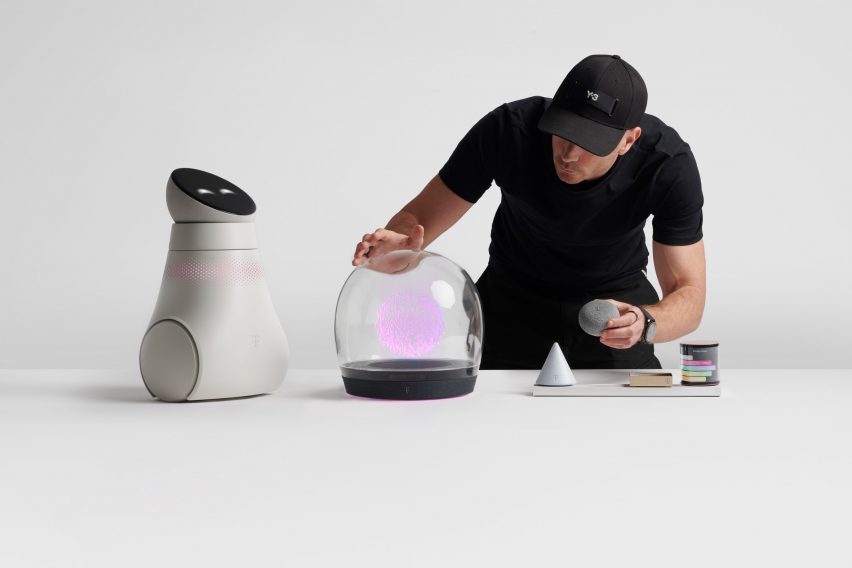
The project encompasses concepts for three potential new products, which either bundle current router functionalities with additional features or imagine new ways of using the device.
Concept View is a holographic smart home hub where three-dimensional visuals appear projected in a small dome over the base unit, similar to how holoprojector devices are portrayed in the Star Wars movies.
Layer suggests the hub could be used to visualise and control other devices in the home, interact with an AI-powered virtual assistant and make video calls, all with people and data appearing as 3D holograms.
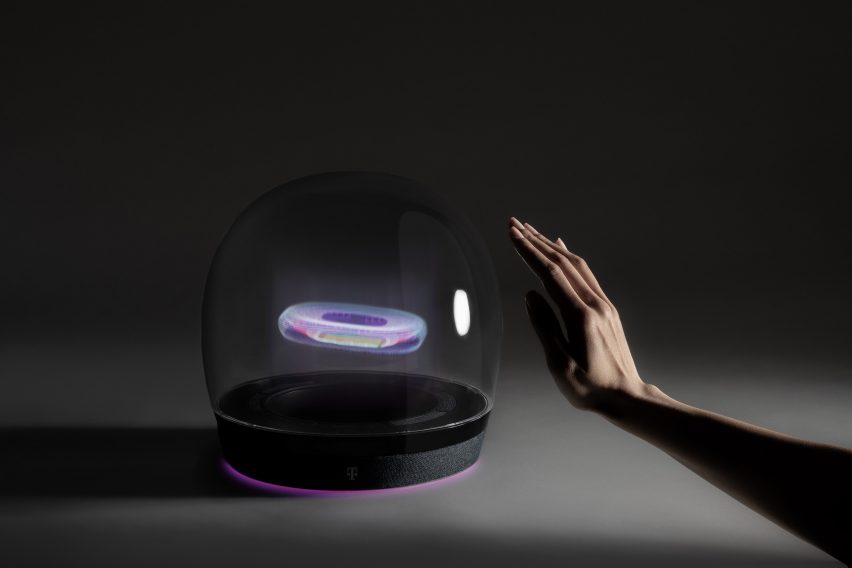
The second product, Concept Level, sticks to more typical router functionality but adds modularity, creating a sculptural object that is tailored to each user's home and can be reconfigured and upgraded as needed.
The different modules include a WiFi-sensing element, a mesh repeater to boost WiFi range and a computational module for Web3 uses such as blockchain verification.
The third product, Concept Buddy, imagines a roving router housed in the form of a friendly-looking robot assistant.
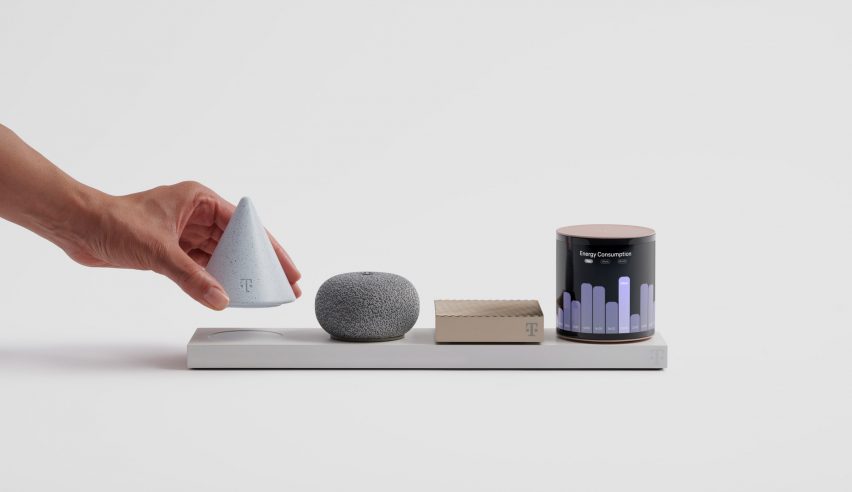
This robot could display information on its head unit or project it onto a surface and could be used for tasks such as monitoring the smart home, conducting video calls or even reporting on air quality.
Layer has made a fully functional prototype of the holographic smart home hub and semi-functional prototypes of Level and Buddy, with working displays and lighting.
Layer founder Benjamin Hubert told Dezeen that the Concept T project was driven by the idea of "enriching the router".
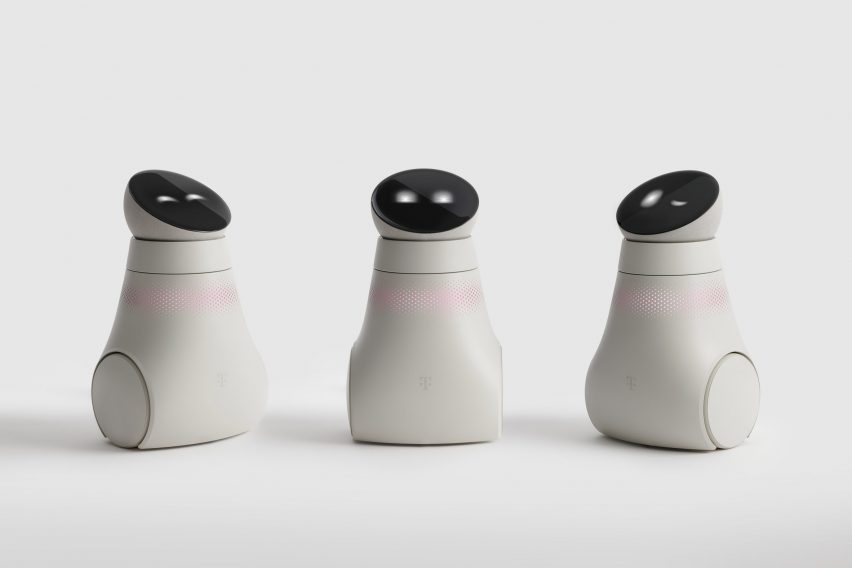
"Routers are essential but often pushed away, behind things, in cupboards, on the floor," he said. "And whilst they provide a core role, they could also do so much more to truly become the most essential piece of kit you own to improve your connectivity experience."
"The red thread of these concepts perhaps helps to raise the question of: should a router be more prominently positioned and utilised in your living space?" Hubert added.
In View, he said, the holographic display brings loved ones, information and AI more emotively into the room and brings "connectivity in all its guises to life".
In the modular Level router, the idea is once again to create a more emotional connection to an object, this time by making it personalised and decorative.
"No two lives are really the same, so some people might require more computing power to crunch through Web 3.0 tasks whilst another wants a display to understand their connectivity or states of the home better," said Hubert.
"This choice, coupled with the added desirability of adding more visual interest to your router, led to Level."
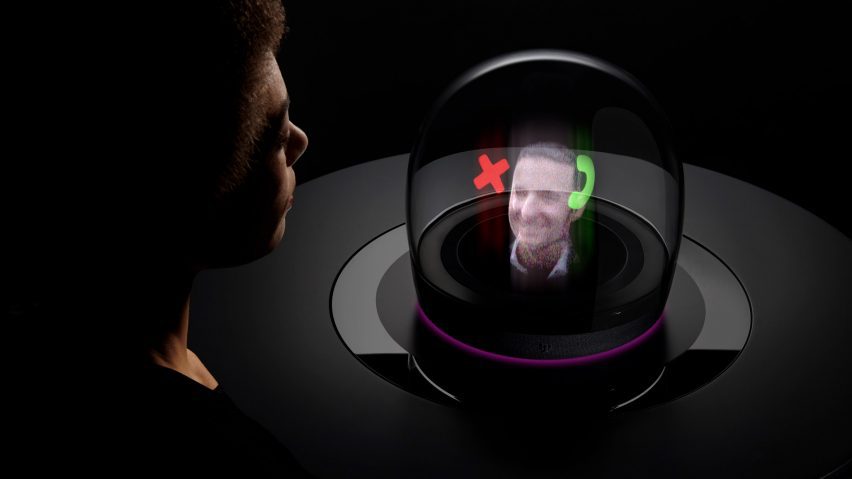
For Buddy, there is an emotional connection created through the anthropomorphised form with expressive blinking "eyes", while the added assistance functionality allows the router to be seen as a more essential product.
Similar-looking "friendly" robots were a feature at this year's CES, with both Samsung and LG launching products. Hubert believes it's a trend that is going to accelerate as AI advances and becomes more embedded in our lives.
"The trend looks to try and create literal and metaphorical vehicles that demystify and make AI more approachable by giving it more human and emotional qualities – without becoming overbearing or uncanny," said Hubert.
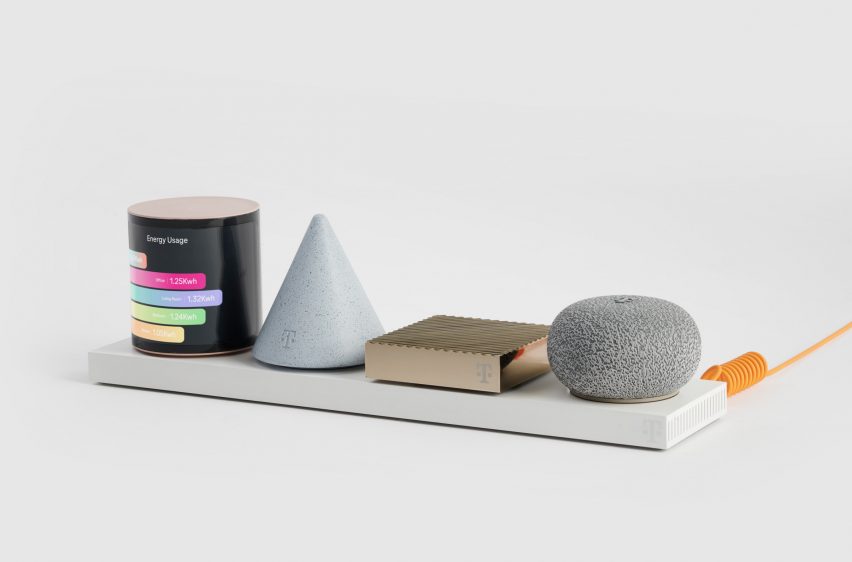
Layer's prototypes were on display at last week's Mobile World Congress (MWC) in Barcelona, within a stand also designed by Layer.
The View prototype included software, hardware, mechanical and electrical engineering, alongside a dedicated UI and UX design. Visitors to the stand were able to have their faces scanned by View's depth cameras to see themselves as a hologram.
Concept T is Layer's second concept project for Deutsche Telekom after the duo presented smart devices modelled on homeware at Milan design week 2022.
According to Hubert, this kind of speculative design allows the studio to push the boundaries of how radical a product can be by working with fewer constraints.
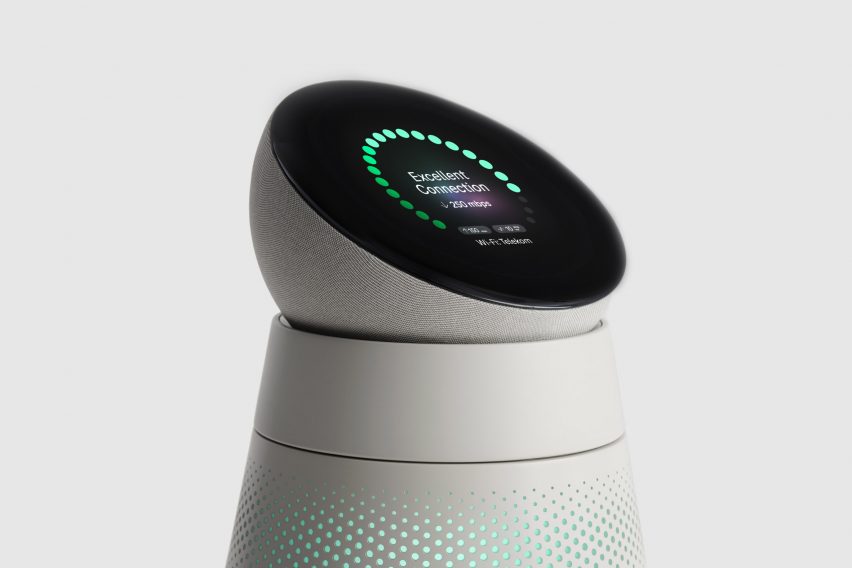
"That's why these concepts are quite progressive," said Hubert. "Where at a glance most people wouldn't consider them to be routers, hopefully they can appreciate the added functionality a router may have and how you might use one."
"The 'what if' often inspires the next generation of products and services we use in reality, and these concept projects can influence everyone's decisions on the type of products and services that a brand and consumer might invest in."
Other products unveiled at this the Mobile World Congress tech fair this year include Samsung's first smart ring and a laptop with a transparent screen by Lenovo.
The Mobile World Congress took place at the Gran Via convention centre in Barcelona, Spain, from 26 to 29 February 2024. See Dezeen Events Guide for an up-to-date list of architecture and design events taking place around the world.